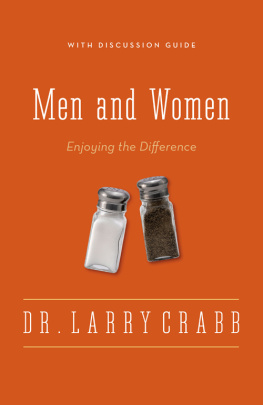Copyright 2020 by John Barr and Dan Murphy
Cover design by Amanda Kain
Cover photograph Dominique Douieb / Getty Images
Cover copyright 2020 by Hachette Book Group, Inc.
Hachette Book Group supports the right to free expression and the value of copyright. The purpose of copyright is to encourage writers and artists to produce the creative works that enrich our culture.
The scanning, uploading, and distribution of this book without permission is a theft of the authors intellectual property. If you would like permission to use material from the book (other than for review purposes), please contact permissions@hbgusa.com. Thank you for your support of the authors rights.
Hachette Books
Hachette Book Group
1290 Avenue of the Americas
New York, NY 10104
HachetteBooks.com
Twitter.com/HachetteBooks
Instagram.com/HachetteBooks
First Edition: January 2020
Hachette Books is a division of Hachette Book Group, Inc.
The Hachette Books name and logo are trademarks of Hachette Book Group, Inc.
The publisher is not responsible for websites (or their content) that are not owned by the publisher.
The Hachette Speakers Bureau provides a wide range of authors for speaking events. To find out more, go to www.hachettespeakersbureau.com or call (866) 376-6591.
Print book interior design by Six Red Marbles, Inc.
Library of Congress Cataloging-in-Publication Data
Names: Barr, John (Sportswriter), author. | Murphy, Dan (Sportswriter), author.
Title: Start by believing: Larry Nassars crimes, the institutions that enabled him, and the brave women who stopped a monster / John Barr & Dan Murphy.
Description: First edition. | New York, NY: Hachette Books, 2020. | Includes index.
Identifiers: LCCN 2019031505 (print) | LCCN 2019031506 (ebook) | ISBN 9780316532150 (hardcover) | ISBN 9780316532136 (ebook)
Subjects: LCSH: Nassar, Larry. | Women athletesAbuse ofUnited States. | Child sexual abuseUnited States. | Child molestersUnited States. | Sex crimesUnited States. | Sexual abuse victimsUnited States. | SportsCorrupt practicesUnited States. | Universities and collegesCorrupt practicesUnited States.
Classification: LCC HV6570.2 .B34 2020 (print) | LCC HV6570.2 (ebook) | DDC 364.15/3092dc23
LC record available at https://lccn.loc.gov/2019031505
LC ebook record available at https://lccn.loc.gov/2019031506
ISBNs: 978-0-316-53215-0 (hardcover), 978-0-316-53213-6 (ebook)
E3-20191126-JV-NF-ORI
For the survivors
This is what it looks like when the adults in authority do not respond properly to disclosures of sexual assault. This is what it looks like.
It looks like a courtroom full of survivors who carry deep wounds.
R ACHAEL D ENHOLLANDER
Before there were hundreds, there were two. On August 29, 2016, Rachael Denhollander, a thirty-one-year-old former gymnast, filed a report with the Michigan State University police department, telling a detective she had been sexually assaulted sixteen years earlier by her doctor, Larry Nassar, during medical examinations. Ten days later, Jamie Dantzscher, under the name Jane JD Doe, filed the first civil lawsuit against Nassar, USA Gymnastics, and its top officials, revealing how Nassar sexually assaulted her for years. The following week, the stories of both women appeared in the Indianapolis Star, the newspaper whose dogged reporters first brought the decades-long scandal to the publics attention.
It was around that time that we began our own reporting on the Nassar case. At the time, we didnt have any idea where the story would lead us. Nobody did. The worldstrangers, close friends, and even some of his victimsdid not yet understand how Nassar created a career that allowed him to prey on hundreds of girls and young women or how the environment that produced the largest sexual abuse scandal in the history of sports fostered his crimes.
What became clear early in our reporting is that Nassars crimes werent limited to a few women like Rachael Denhollander and Jamie Dantzscher in the distant past. He was a master manipulator who for decades groomed and sexually abused his patients, a group that included some of Americas biggest Olympic stars, including some who had just weeks earlier won gold medals in Brazil. While many of these women werent yet ready to share their stories with the public, we learned the scope of Nassars crimes would be enough to shock the nation if eventually revealed in full. Our reporting raised pressing questions about how many others were suffering in silence and how he was able to hide his actions for so long while operating so close to the spotlight.
The pursuit of answers led us to a deeper understanding of the trauma experienced by sexual assault victims and the courage needed to publicly reveal abuse. It also led us into the highly dysfunctional world of club and elite-level gymnastics, a world where emotional and physical abuse is normalized, where young girls are conditioned not to question authority and to remain silent as they are used and broken. This is the world in which Nassar hid in plain sight for more than a quarter century.
Understanding how Nassar gained unfettered access to thousands of young girls, despite repeated warning signs, meant confronting an uncomfortable truth: he didnt gain that access alone. Nassar was surrounded by a complex web of enablers, a group that included coaches of club, collegiate, and elite-level gymnasts; the USA Gymnastics organization and its top administrators and coaches; and medical professionals, administrators, and coaches at Michigan State University.
The material in these pages is the result of more than two and a half years of reporting. Weve interviewed sources from dozens of states. Weve reviewed thousands of pages of documents, including public court records, police reports, Title IX reports, and other documents obtained from Michigan State University through public records requests. We also drew on newspaper reports, social media posts, and the personal materials of those involved.
While more than 150 sources spoke with us, many did so under the condition that they remain unnamed. Others declined to be interviewed for the book or didnt respond to interview requests. Most notable among those who chose not to be interviewed: Larry Nassar, who did not speak to any reporters during the time between his arrest and the publishing of this book. We did our best to provide everyone mentioned in the story that follows an opportunity to participate and share their perspective.
As our research gave us a deeper insight into Nassar and his actions, we came to understand this as a story about power and control. In the beginning, Nassar and the systems at USA Gymnastics and Michigan State University that enabled him exercised total control over the lives of the young women and girls he sexually assaulted. In the end, this remarkable group of survivors took back control, spoke truth to power, toppled the leadership of both institutions, and, in so doing, empowered countless others.
Our decision to focus this version of events on certain women involved should in no way diminish the importance of those not mentioned. Each survivors story matters. It is our hope that the accounts we chose reflect the strength and courage exhibited by the collective group. We have extensively checked events via interviews and through documents and other primary sources. We have sought to include a full range of perspectives in a fluid, unfolding story.
We also wrestled with the question of surnames. Weve decided to forego the journalistic practice of referring to certain women, like Jamie Dantzscher and Rachael Denhollander, whom youll meet in just a few pages, by their surnames upon second reference. The same applies to Kyle Stephens, whom youll meet later in the book. For the sake of consistency and clarityand because the reader will follow these three women through many stages of lifewe chose to use their first names throughout the book. While on occasion well use first names of others for the purpose of clarity, well generally use surnames for all other subjects.







